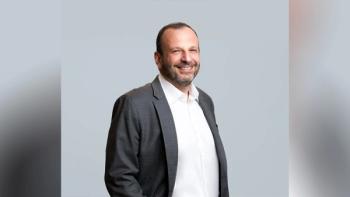
- Pharmaceutical Executive: June 2024
- Volume 44
- Issue 6
Craig Tooman: Silencing the Distractions
Craig Tooman, CEO of Silence Therapeutics, on steering through the rough biotech funding and investment waters post-pandemic—and how a retooled organizational approach has the company in a stronger position today in the growing field of gene silencing through siRNA drugs.
Craig Tooman is very proud of what Silence Therapeutics has accomplished, and not just because he’s the CEO of the company. While the life sciences industry is seeing a rebound at the moment, biotechnology and clinical-stage companies in particular had a rough time post-COVID-19. Investors became wary of the sector due to a variety of reasons, and funding suddenly dried up. For many companies, this caused serious problems and many positions didn’t survive.
Tooman, who throughout his career has worked closely with Wall Street representing pharmaceutical companies, was able to steer Silence, which specializes in the design and development of next-generation, short interfering RNA (siRNA) therapies, to success during that time period. This meant that while some projects had to be temporarily dialed back, Silence didn’t have to undertake the job of cutting positions that other companies were forced to deal with.
“We had an outstanding year in 2023, but I have to say these external markets have been the most challenging I’ve seen in the many years that I’ve been working with Wall Street,” Tooman tells Pharmaceutical Executive. “There were the macro issues, such as bank failures, the war in Ukraine, and other situations that have had an impact. The funding was a real challenge for many small companies, so we had to really focus and prioritize during that period, because you can’t do it all. However, we didn’t stop doing anything. We really just prioritized and focused on the programs that we thought would be best able to generate good data for us.”
While Silence has a two decades-long history, Tooman only joined the company three-and-a-half years ago. During that time, he’s evolved Silence, headquartered in London, from a research-focused organization to one that’s now running multiple clinical trials.
“I came in originally to serve as [chief financial officer] and then became CEO,” he says. “As CFO, I made the decision to focus solely on the Nasdaq. The idea of that was very purposeful, as we really wanted to line up for the biotech funds that had a great sense of the mission at development-stage companies. As a result, we also started to do other things, like quarterly reporting. Even though we’re not required to do that, from the standpoint of a UK-based company, we did that to lean into those US funds. This made it easier for potential investors to compare and contrast us with other companies.”
These moves were successful, and Silence now finds itself in a stronger position. Tooman had a very specific plan for building capital. Knowing that the research Silence was working on had a lot of potential, Tooman devised a strategy that would best position the company to move toward clinical testing.
“We’ve done three financings now totaling over $200 million in US denominations,” he explains. “The equity was all in US currency. This was something that we did purposely, as we decided that securing US funds was our best strategy for moving us to the next stage. The fortunate thing is, at the same time, our research programs moved into development and the Phase I or II programs in our proprietary program started bearing fruit. Our data was very good. That has led us into a situation where we’re able to fund again.”
Currently, Silence has labs in Berlin, Germany, along with its headquarters in London. The UK company recently opened up offices in Hoboken, New Jersey, further expanding its global reach. In fact, Tooman stresses that while Silence is based in the UK, it is a global company.
Throughout the company’s lifespan (it officially formed in 1994), Silence has been focused on RNA research. It’s in this setting where its name originated.
“The name Silence was coined because we actually ‘silence,’ or block, genes expressed in the liver that are associated with different disease states,” Tooman tells Pharm Exec. “It’s a fascinating technology because it is reversible. We’re not editing genes, we’re not permanently changing your genetic makeup; we’re just going to block those harmful effects in disease.”
The CEO adds that efforts in the field, which Silence has been part of for 20 years, have translated into encouraging and promising clinical-stage assets. And during that time, the company, as noted, has transformed from a research-oriented entity into a development-stage one, but also evolved from a private company to a publicly traded organization on Nasdaq. “To be a part of that has really been a great journey,” says Tooman.
As soon as he joined Silence, Tooman saw potential. However, he realized that the historical focus of the company, primarily on the research and preclinical end, was actually a limiting factor. Drawing from his experience and career roots in investor relations and strategic planning, Tooman says he devised a plan to change that.
“When I joined, I was looking at the capital markets,” Tooman explains. “That’s where my experience is. At previous points in my career, I raised almost $9 billion for companies I had been associated with, whether I was working with them or serving on their boards. What we saw here was a company with a research orientation. A company like that doesn’t really require the funding that a development-stage company does. As we moved into that development stage, one of our first goals was to link it to better funding.”
SUCCESS BREEDS COMPETITION
Silence recently announced the results of a study of one of its key pipeline candidates, zerlasiran, for cardiovascular disease. According to Phase I study results, participants in the trial saw a decline of up to 99% of Lp(a), a key biomarker for cardiovascular risk.
These types of results attract attention, which is a positive for the field. However, it does come with a downside.
As more players enter the siRNA space, the playing field becomes more competitive. This means that obtaining and retaining key talent in the area can become more difficult.
“It’s a very competitive area and it’s increasingly more competitive because of the results that we’re seeing in some of these trials,” Tooman says. “We’re a platform company; its underlying technology. We’ve seen results in both large cardiovascular and orphan diseases. We’re also in a clinical program with AstraZeneca, one of our partners on our third clinical program.”
Helping advance these pursuits, Tooman notes, is a team of scientists Silence has working in Berlin—some for more than 20 years.
“It’s a great group,” he says. “During the really tough market in 2022 and 2023, we did not eliminate the research team. We actually held on to those people and continued to fund them. However, we did dial some of the programs back a little bit. But the very last thing that we wanted to do was to eliminate one function of the company that’s been so effective for us. Even in the current market, we continue to move through that, and I think that’s worked very well for us. Now that we’re funded on this side of it for a period of time, we’re actually able to turn those programs back up. So, it’s a shared commitment.”
Continuing on that theme more broadly, Tooman adds, “I spent the better part of the first decade of my career with Big Pharma, so I know how Big Pharma operates. I have a lot of respect for them. At Silence, I think we have great intellectual property, we’ve got a great team. And even our partners like AstraZeneca have great things to say about Silence.”
FUNDING DURING TOUGH TIMES
For biopharma senior leaders, the 2022-2023 market was a memorable time, and usually not for good reasons. Companies, such as Silence, developing new therapies need a steady flow of investors to keep the research and testing going. While other organizations were struggling, Tooman was applying the lessons he had learned throughout his career raising significant dollars for various nascent and emerging businesses.
“The one thing that’s interesting to me is that it’s always different,” he says. “It’s never what you anticipate when you start that process, having done so many different secondary raises or IPOs. Every one of them is different. In the end, you must be a really good mapmaker. Look at all your optionality and business, look at those pivots that are going to give you the opportunity to potentially raise money, and then operate toward that.”
A history and familiarity with investors, of course, doesn’t hurt either.
“We try to get to know as many people as we can, as early as we can to know where their thresholds are, what their hot buttons are, and what they’re looking for,” Tooman tells Pharm Exec. “It isn’t always obvious, I’ll be honest.”
INVOLVING EVERYONE
It’s easy to be a leader during the good times. Tooman, however, steered his company through a difficult market that many companies didn’t survive. While he had a financial plan to help stay afloat, he also understands that a company is really made up of the people that work there. For him, a big part of leading is including those people in the decision-making process.
“I would say my style is to really involve as many people as I can,” he says. “I really like to surround myself with experts and have conversations with those people individually. But I also like to bring the team together because I find that comments from one team member can stir something from a team member that may not necessarily be in their specific area. So, I give people a lot of latitude to fulfill their management obligation. But I do like to share the decision-making. I’m not one that believes that my idea is always the best idea. I really like to have the organization bring optionality and ideas to the group and have us think them through.”
In helping shape his approach, Tooman credits how much he’s learned from others over the years, especially mentors. He specifically names Fred Hassan, who has led global pharma organizations such as Pharmacia, Schering-Plough, and Bausch & Lomb, as somebody who understood all the different sides of the business. With a background in chemistry, Hassan had a strong connection with the science side of the business. However, he also had an MBA and was a proven businessman.
Tooman says that learning how to balance his time understanding the different facets of the industry was great training for him.
“So much of our business is rooted in the science,” he says. “But of course, as you’re moving into the business realm, it’s great also to understand that piece of the puzzle. So I would say, learn as much as you can and meet as many people as you can to try to understand different facets. Because it is not singular, and it is complex. And it’s a very specific business—we’re a very regulated business with FDA, etc. The earlier you can get up front and understand where you’re ultimately likely to end up from a sales and marketing standpoint, and kind of bake that back into your process, the better off you are.”
A WORLDLY LENS ON FINANCE
Discussing his early career, Tooman explains that he began as an economics major, earning a BA from Kalamazoo College, and followed that up with an MBA in finance from the University of Chicago Booth School of Business. He then moved to Japan, due to what he refers to as the “economic miracle” that was occurring in the country during that time period.
“It was a really fascinating time to be there,” he says. “I was able to interview up to 600 executives and others in Japan, to find out how the pharmaceutical industry was evolving in Japan. As a result, I developed some very interesting M&A ideas. I ended up in a management training program, so I went through finance, marketing, and sales. I was a financial analyst for Japan originally.”
From there, Tooman adds, he returned to the US, but not for good. “I worked in marketing and then moved into sales and learned how the interface between pharmaceuticals and doctors occurred in Chicago, and then went back to Japan. So, I came full circle and while learning the entire pharmaceutical business.”
After that, Tooman followed his interest in finance and Wall Street and became an investor relations head at Pharmacia. His work eventually took him to London, where he built up a global investor base.
Looking at Tooman’s history, it’s easy to see how these experiences kept Silence afloat during a tough market. Sometimes, in order to survive a situation like that, a company needs a leader who truly has a global perspective.
Articles in this issue
over 1 year ago
Beyond the Numbers: Extrapolating Today’s Trends Forwardover 1 year ago
Pharmaceutical Executive: June 2024 Issue (PDF)over 1 year ago
Opposite Spectrumsover 1 year ago
2024 Pharm Exec Top 50 Companiesover 1 year ago
Regaining Trust in the Pharma Industryover 1 year ago
The Healthcare System is Changing—So How Should We Respond?over 1 year ago
Biotech Performance Remains Tethered to Rate Expectationsover 1 year ago
Pharm Exec Exclusive: Mark Cuban Talks Drug PricingNewsletter
Lead with insight with the Pharmaceutical Executive newsletter, featuring strategic analysis, leadership trends, and market intelligence for biopharma decision-makers.




